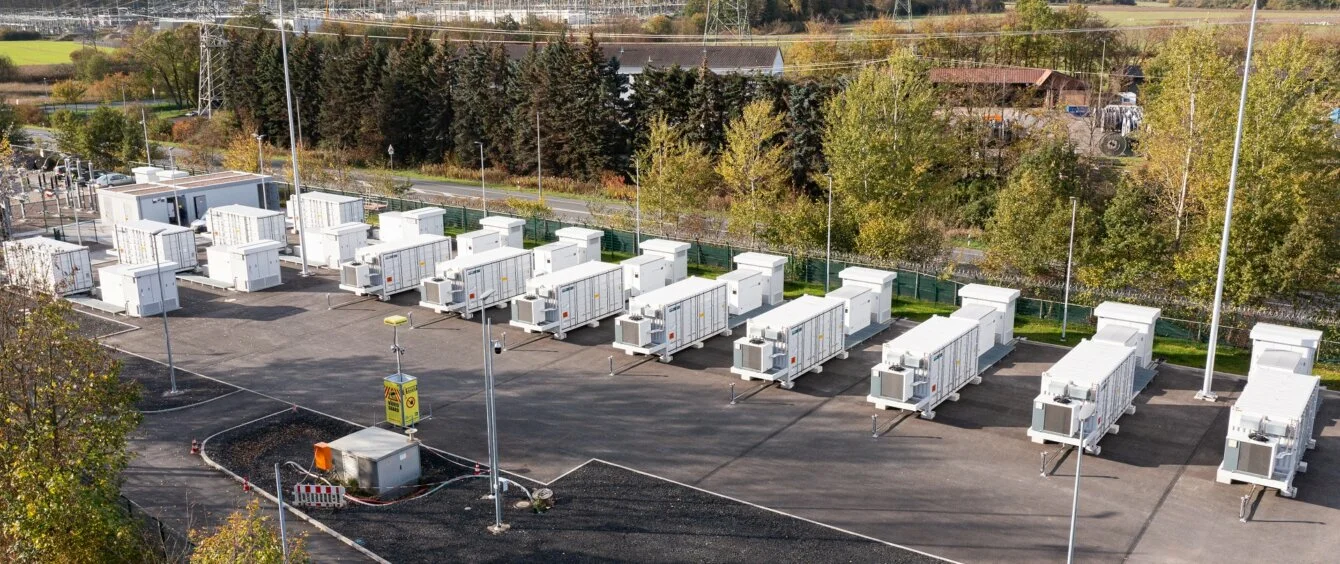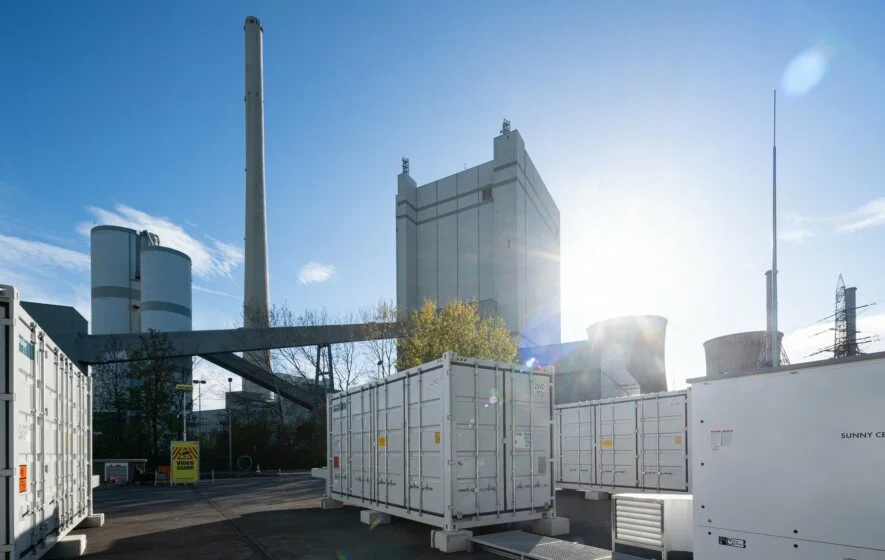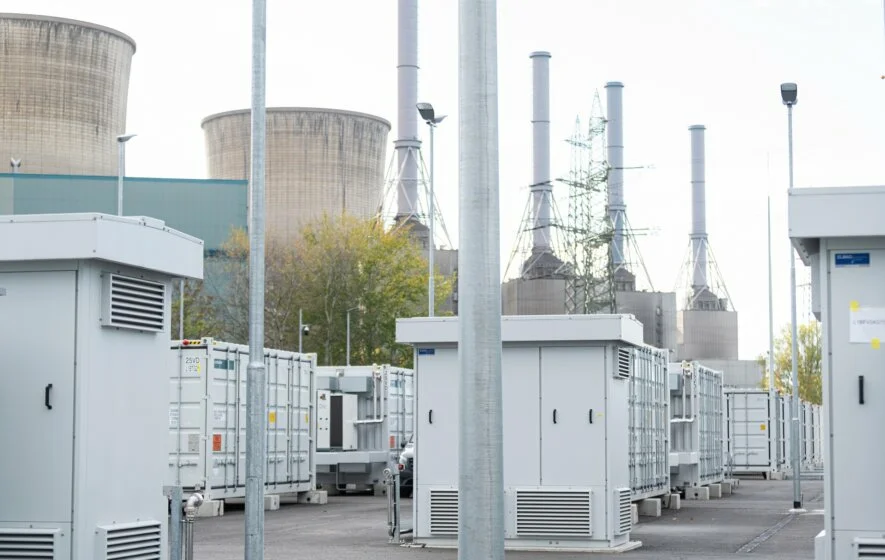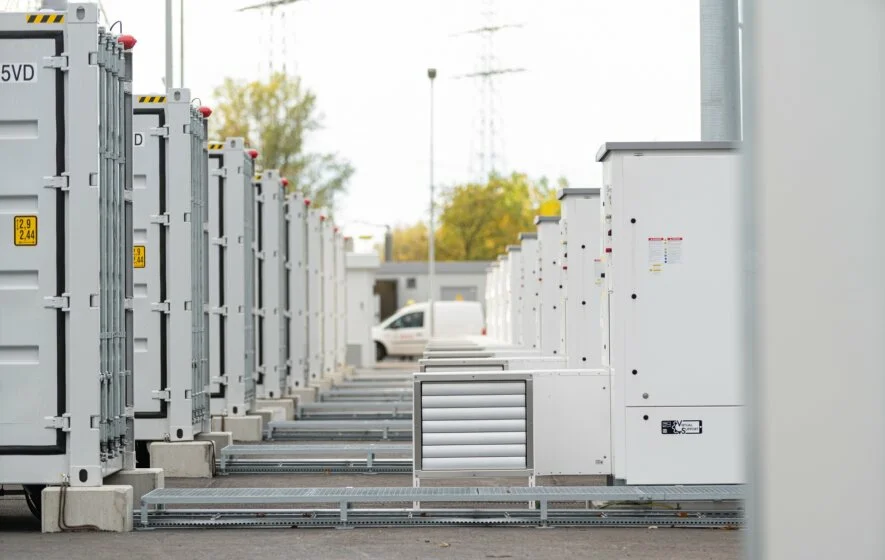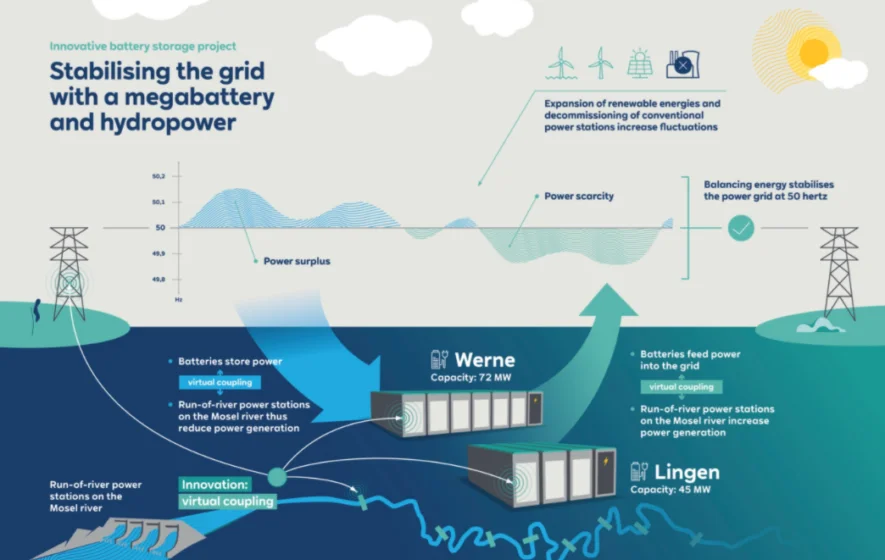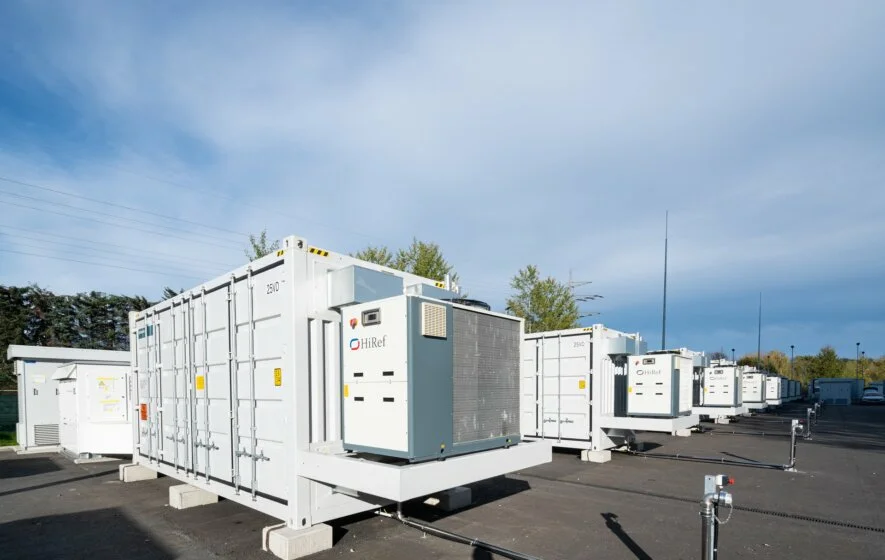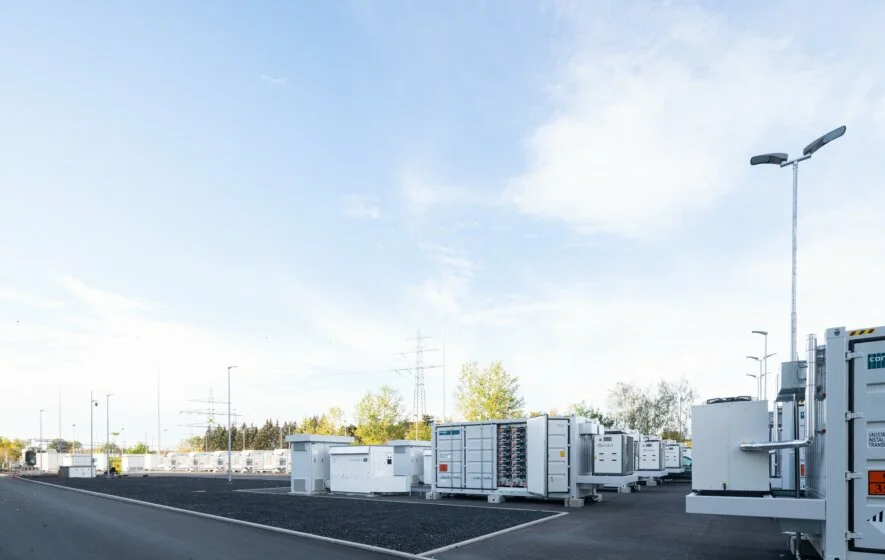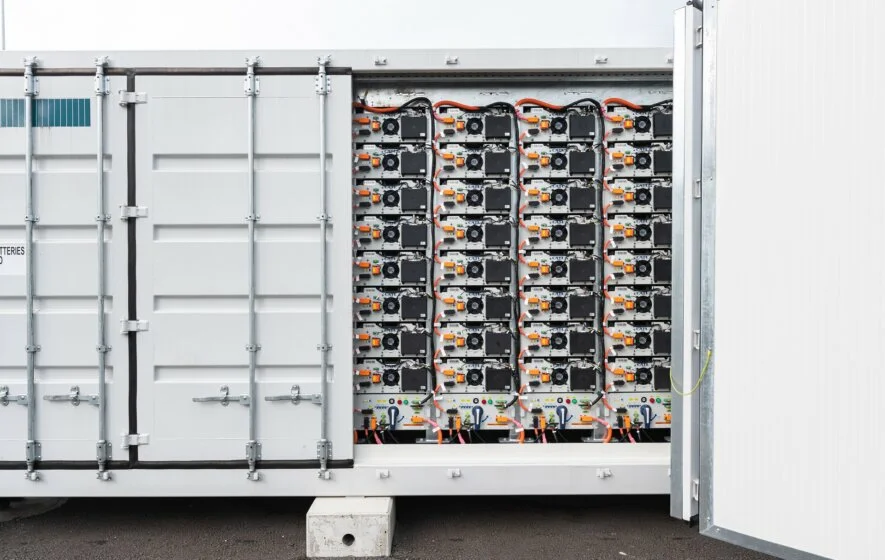Installation of Germany’s first megabattery is complete. In just 14 months, RWE succeeded in building a battery system with a total capacity of 117 megawatts (128 megawatt hours / MWh). Starting within seconds, the new system is capable of delivering the specified power for around an hour. A total of 420 blocks of lithium-ion batteries have been installed at RWE power plant sites in Lingen (Lower Saxony, 49 MWh) and Werne (North Rhine-Westphalia, 79 MWh).
With the increasing expansion of renewable energies, Germany needs innovative storage solutions on an industrial scale that can step in when the wind and sun are not supplying. In terms of size and technology, we are setting benchmarks in this country with our mega-battery. The completed battery storage facilities and our hydroelectric power plants on the Moselle will work hand in hand in the future to help stabilise the electricity grid. Roger Miesen, CEO of RWE Generation
What makes the new battery storage system special is its virtual connection with RWE’s run-of-river power plants along the Moselle River. By selectively regulating the flow rate at these plants, RWE is able to provide additional power as balancing energy. As a result, the total capacity of power available for grid stabilisation in this system increases by up to 15 percent. The company has invested around 50 million euros into the megabattery project.
The battery storage system has already fed electricity into the grid and is currently going through a trial run. Commercial operation is scheduled to start in the next few days. Tests have also been successfully carried out on the software that RWE developed for intelligent linking to the Moselle power plants. Regular application of the programme is scheduled to start in the spring.
During the implementation of this project, RWE was able to draw on extensive in-house experience in energy storage systems. The company took exclusive control of project planning, modelling, system integration and commissioning. Also, because the megabattery takes advantage of available areas at RWE power plant sites, the batteries can utilise existing grid infrastructure to feed electricity in and out of the grid.
